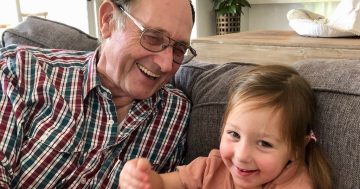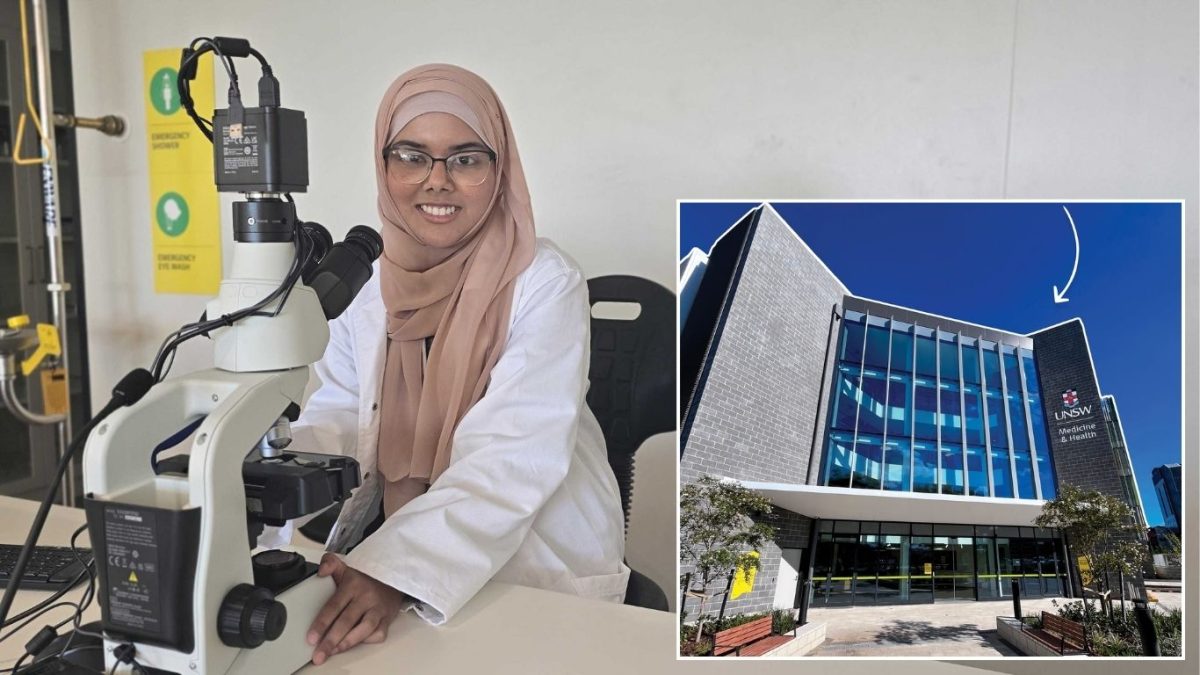
Nusrah Bashar is one of 30 first-year students to start at the University of New South Wales’ new medical campus in Wagga Wagga. Photo: Shri Gayathirie Rajen/University of New South Wales.
For first-year medical student Nusrah Bashar, studying medicine in the Riverina at a world-class facility is about more than convenience — it is about gaining firsthand insight into rural healthcare challenges and making a lasting impact.
Nusrah is among the 30 students in the inaugural first-year medical cohort at the University of New South Wales (UNSW) Rural Clinical Campuses, Biomedical Sciences Centre, located adjacent to Wagga Wagga Base Hospital.
The $21 million state-of-the-art medical training facility will train about 100 medical students from the first to sixth year, teaching medical sciences, anatomy, and clinical skills.
The new campus features high-tech simulation facilities and a dry anatomy laboratory, as well as a lecture theatre, tutorial rooms, study areas, and a lounge, all fitted out with the latest technology.
“We need more rural doctors, and studying in Wagga, we get to see the deficiencies currently in rural healthcare … seeing the patient-to-doctor ratios and special cases that may exist in rural hospitals but may not in metropolitan hospitals,” Nusrah said.
“Studying in a rural location helps identify rural healthcare needs and make a long-term impact.
“We have a small cohort compared to bigger campuses in metropolitan areas, and it helps us get to know each other. It’s our first week of studying, and I already know everyone’s name. If I lived in Kensington (UNSW Sydney campus), I wouldn’t know.”
The 18-year-old feels grateful to be part of the first cohort to use the new medical facility.
“I’ve seen the new building being built over the years, and I couldn’t wait for it to be finished,” Nusrah said.
“I didn’t think we’d be the first cohort to be able to use it, but maybe use it in our second year.”
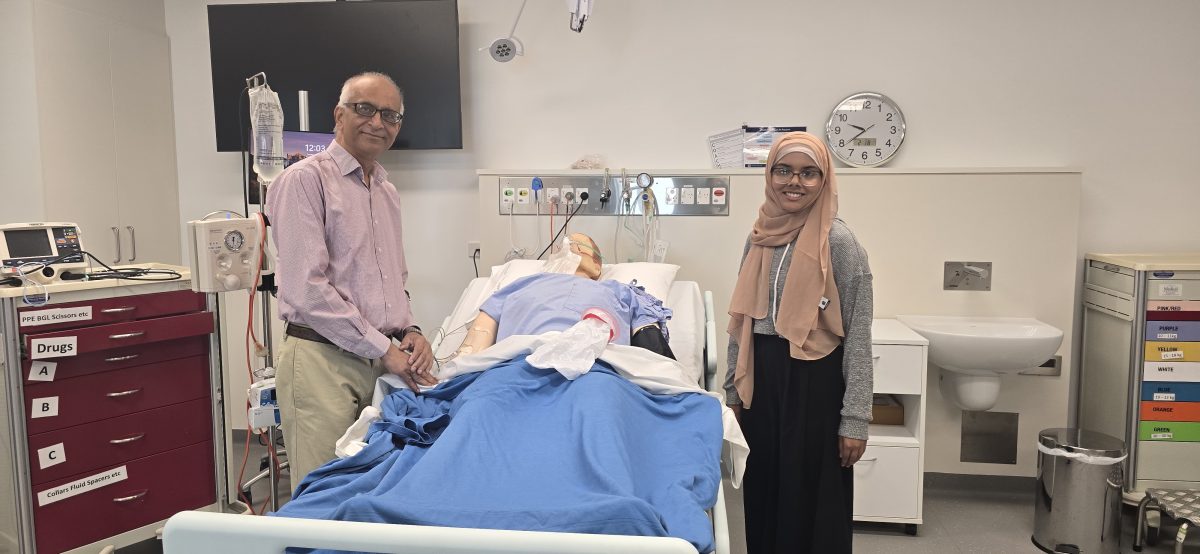
UNSW Rural Medical School Director of Medical Education Associate Professor Rashid Hashmi and Nusrah Bashar. Photo: Shri Gayathirie Rajen.
Born in Adelaide and having lived most of her life in Wagga, the first-year medical student wants to practise in the region.
“Growing up rural, I don’t enjoy the city; it’s too chaotic. We need more doctors, and by staying in rural areas, I can make a meaningful impact,” Nusrah said.
With her siblings also medical students, Nusrah gravitated towards medicine and the impact doctors have on people’s lives, as well as problem-solving and community service.
The new campus and the UNSW medicine program were also factors in Nusrah’s decision to pursue medicine.
UNSW Rural Medical School Director of Medical Education Associate Professor Rashid Hashmi said the centre was a long time in the making and stood as a tribute to all who were involved in bringing it to fruition.
“I am very excited, and so are my staff and academics. (The new facility), combined with a new hospital, will be a good drawcard not only to increase the capacity of local recruitment but also the retention (of doctors),” Professor Hashmi said.
“A lot of people would want to come to teach, and having a good facility like this would be inspirational for them.”
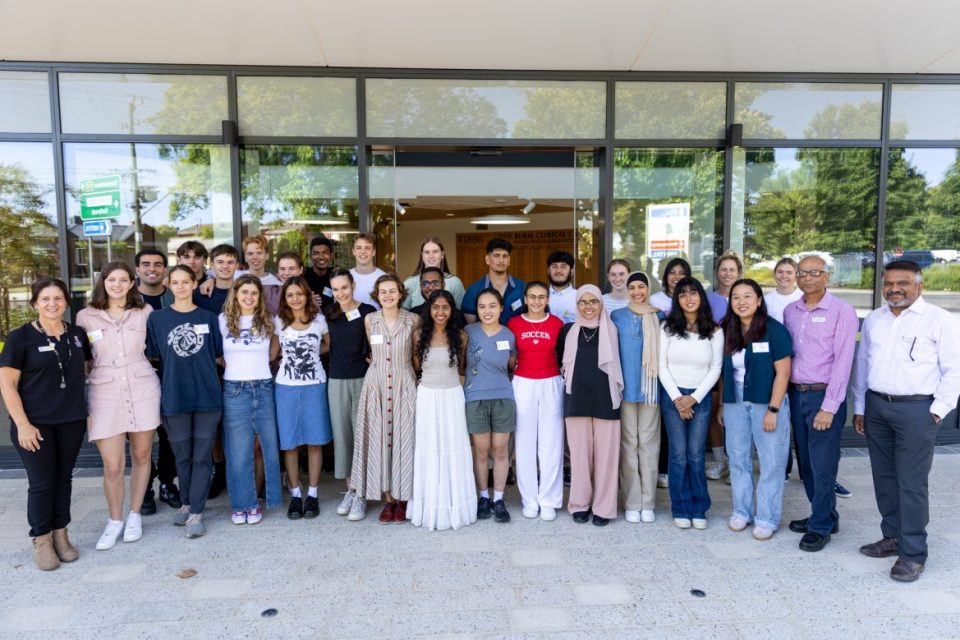
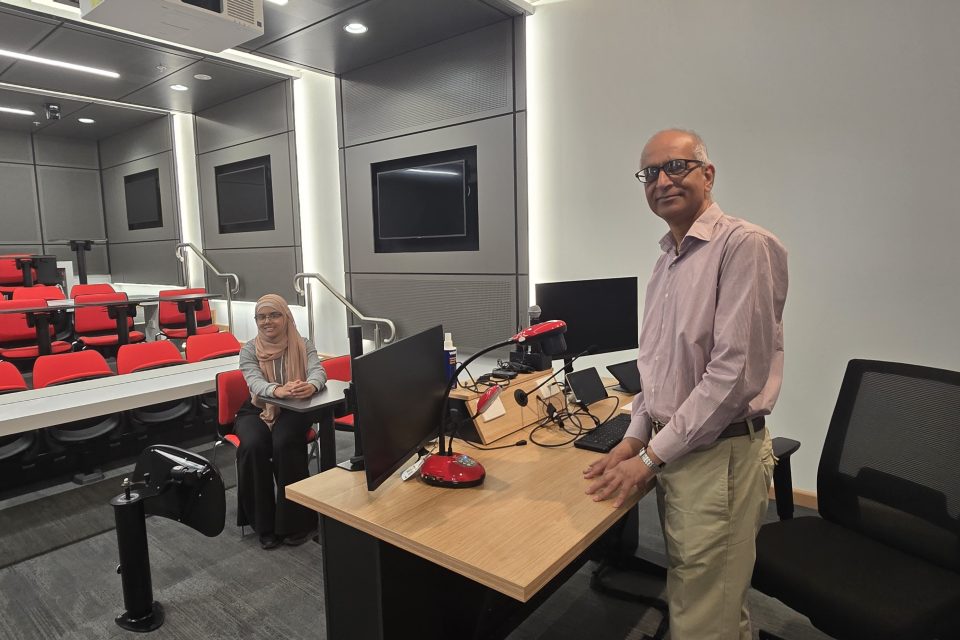
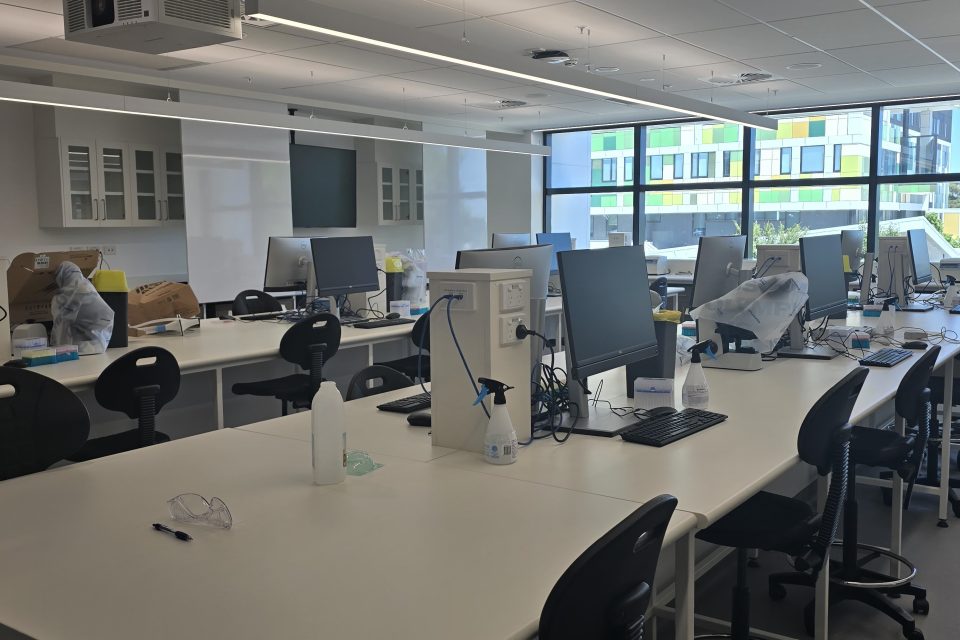
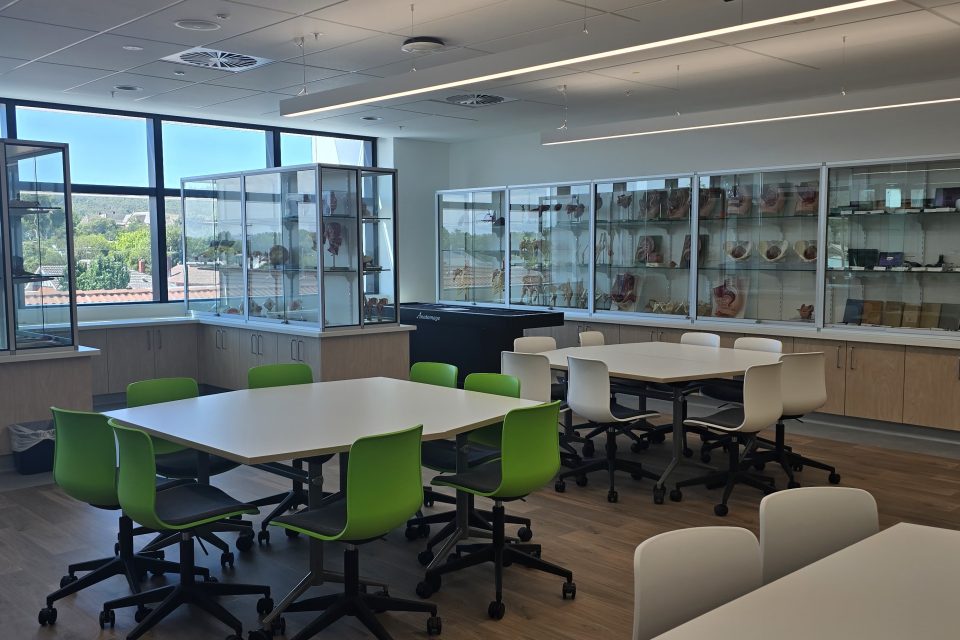
Professor Hashmi said the new facility bridged regional and city medical education gaps.
“In terms of the labs and teaching spaces, it’s almost on par with what is in Sydney, and the students have a more personal relationship with staff, academics, and doctors, which is not the case in cities,” he said.
“In Wagga, you can have a group of two students with one consultant for the entire day, compared to 15 or 20 in the city.”
Professor Hashmi said the new facility would significantly enhance medical training, moving away from the heritage-listed Harvey House building.
“We started at Harvey House 25 years ago with just a handful of students coming from Sydney for a short-term placement,” he said.
“It’s a big evolution from five or six students to 100-plus students this year.”
Professor Hashmi said the challenge of retaining doctors was beyond the university’s control, as postgraduate training was largely city-based.
“They have to move to become surgeons or physicians. If someone doesn’t want to move from Wagga, they only have two opportunities — training in primary care or becoming a psychiatrist,” he said.
Professor Hashmi said students had to leave for their training, which could take up to four to six years or more. The graduates’ priorities change when they settle down and start their own families.
He said that while the university did its best to keep in touch with alumni and encouraged young doctors to return, it had limited influence over their life choices.
Professor Hashmi said that despite the difficulties of retaining young doctors, there were success stories of doctors returning to the region to practise and as second-generation teachers and academics.
Gundagai general practitioner Dr Barbara Cameron graduated from the Wagga campus in 2000 and is now in charge of teaching clinical and communications skills at the new facility.
Another former student, psychiatrist Dr Sean Hogan, returned as the psychiatry lead.
Original Article published by Shri Gayathirie Rajen on Region Riverina.







